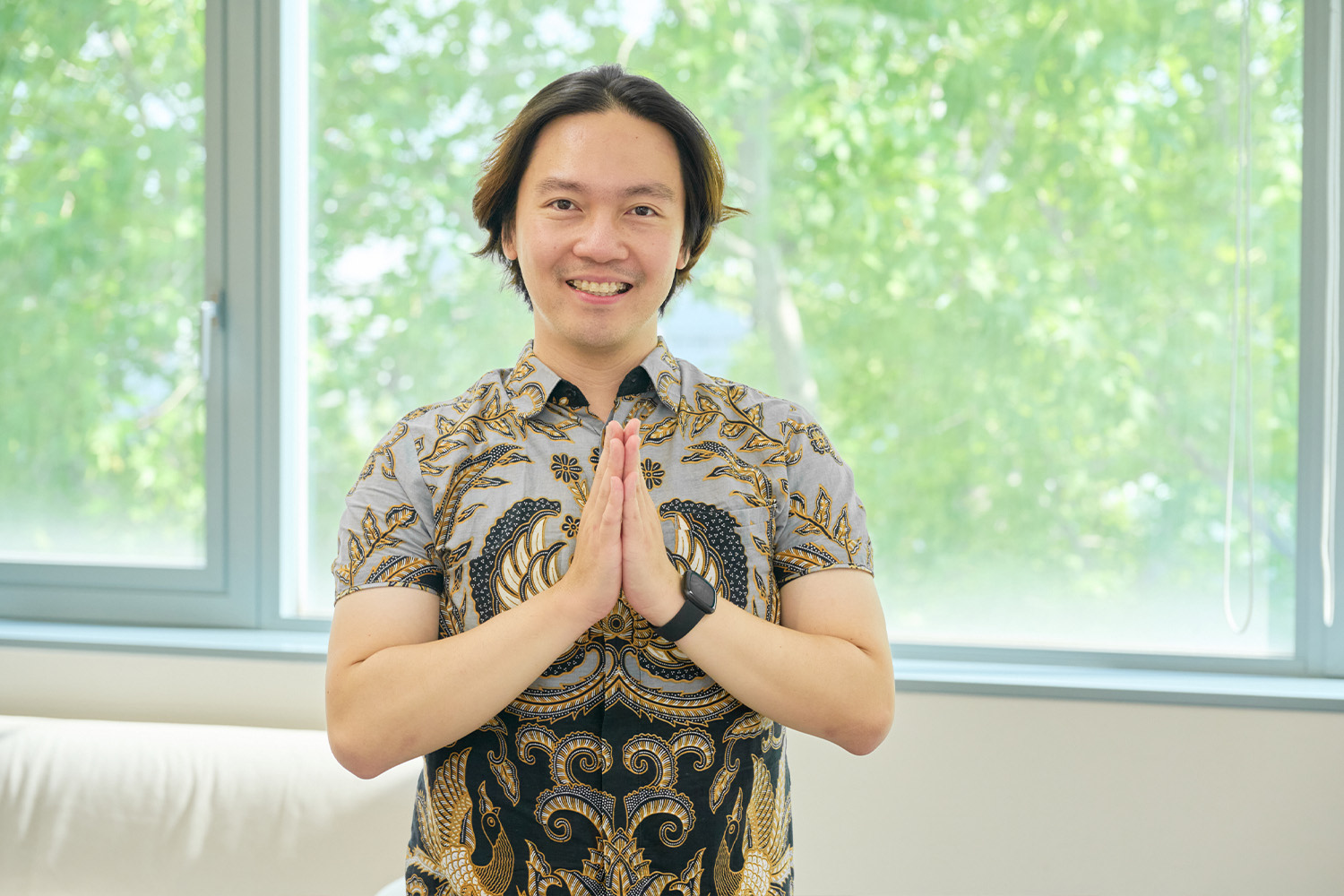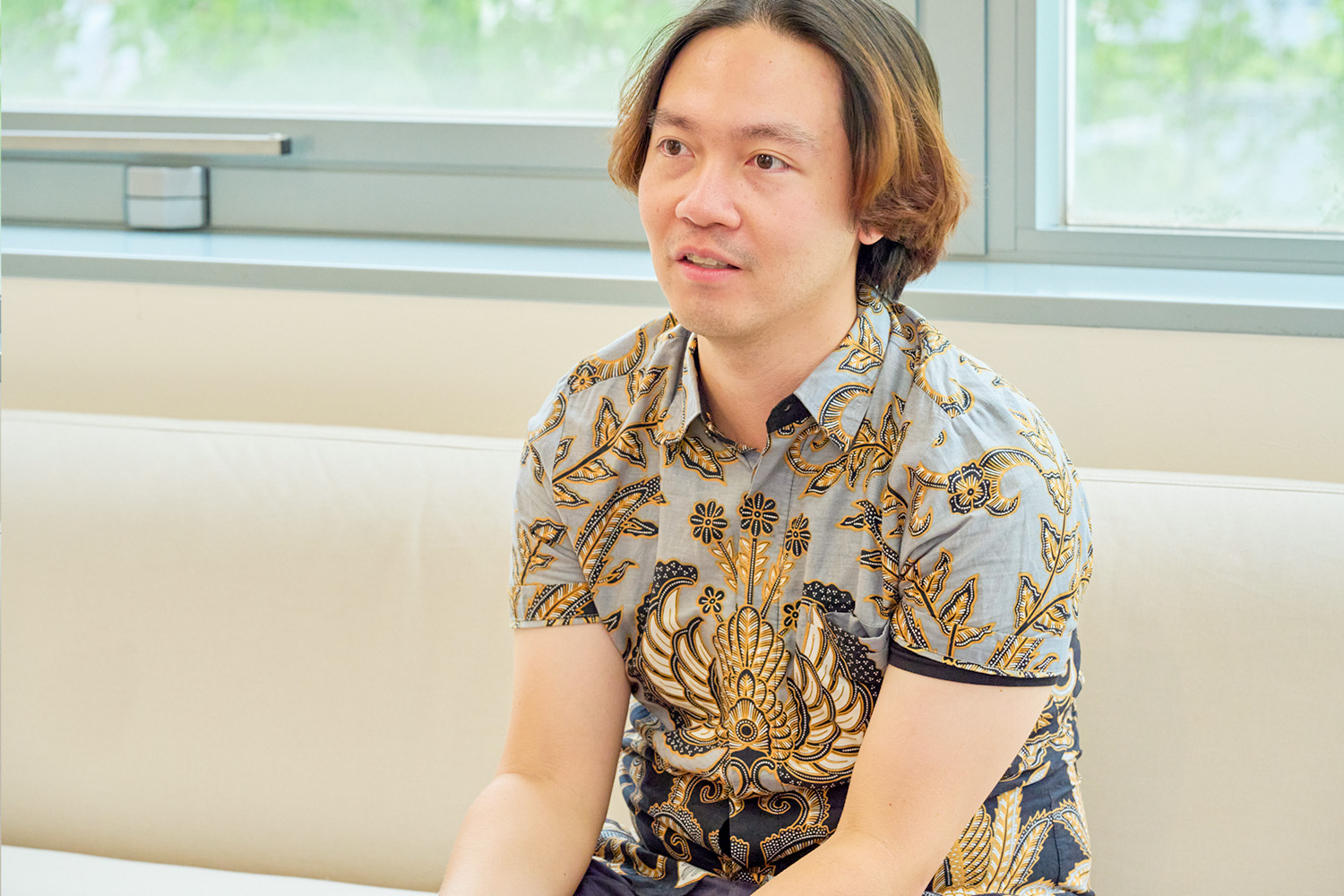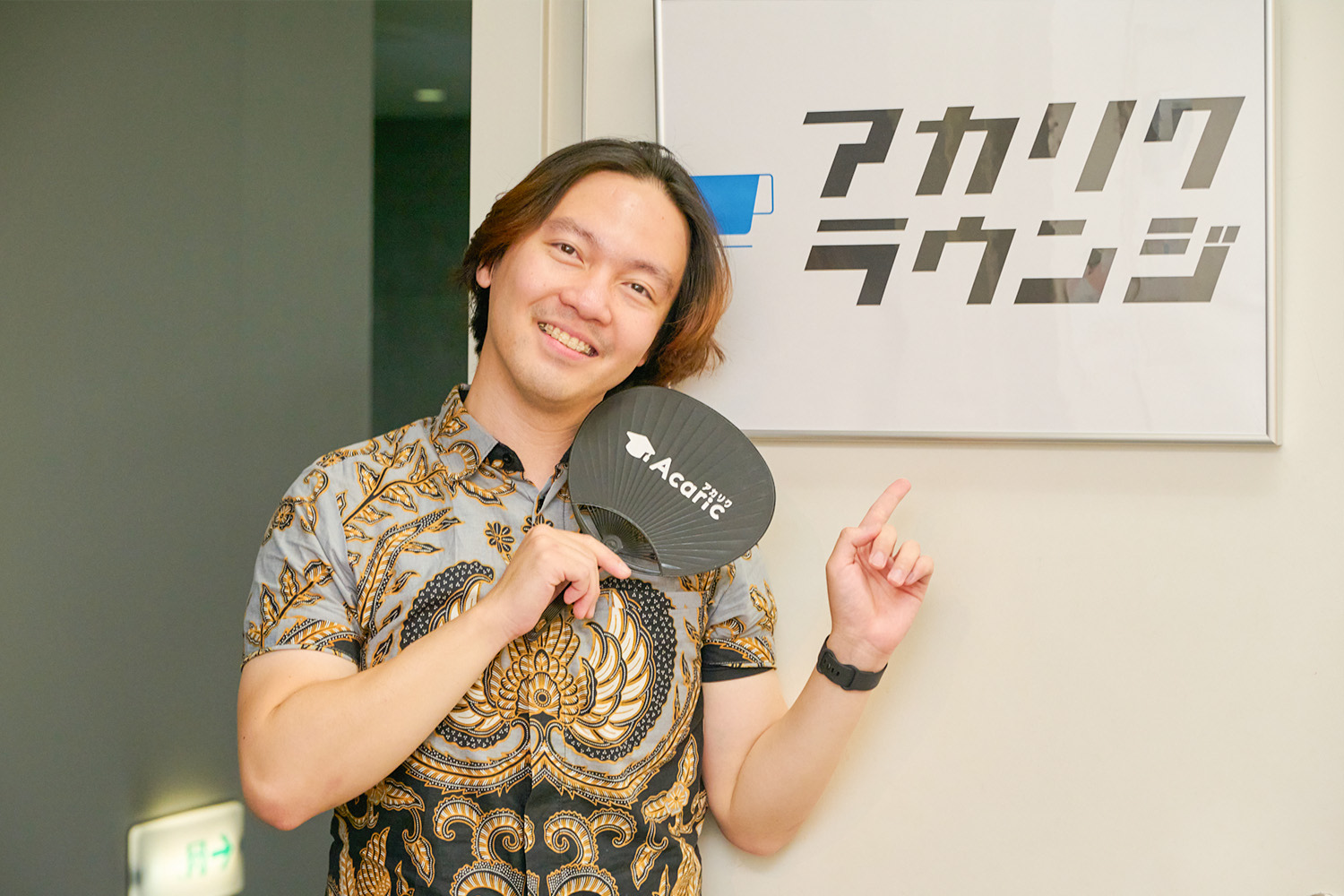あなたの研究テーマについて教えてください。What is your research theme?

My main theme is "multimodal, multilingual, and multicultural." However, My current research is the one that I proposed for the Granite program: multimodal machine translation, specifically we're trying to translate academic lectures from videos. Normally, people translate based only on the text or transcription, but certain terminologies and concepts can only be explained through the slides. So, my research is to integrate these multiple modalities— the visual scene images, the textual transcription (or the captions/subtitles), and the audio. The acoustic element is also important because sometimes the way a word is said can also play a semantical role in what kind of terminology is used. So, I am trying to integrate these multiple modalities into machine translation, currently in the context of academic lectures. That's my proposal to Granite.
The idea actually started from Professor Tamura, one of the associate professors in my lab, regarding lecture videos for translation. But the reason why it resonated with me is because I have been working on multilingual, specifically low-resource languages. There are over 700 languages in Indonesia alone, and over 1,300 across Southeast Asia. That's my main motivation. After listening to Professor Tamura's ideas, I thought it would be a great idea if this lecture video translation could also cater to low-resource languages. Currently, we are trying to pursue middle-resource languages first before moving on to low-resource ones.
The biggest social impact of this research, in my opinion, is inclusivity. Imagine an Indonesian (or indigenous person) who doesn't speak English or Japanese coming across a Japanese seminar video. If there are no other similar seminars in Indonesian (or indigenous language) on that topic, the video would be the only material available. But because of the language barrier, they can't access it. My research aims to improve this accessibility, making society more inclusive. I think that's my fundamental motivation, especially since lifelong learning is for everyone. Nowadays, people can search online or ask AI for help, but when they face an academic lecture video with no translation available, they sometimes just give up watching it. I want to lower that barrier so that everyone can access these materials.
なぜ博士課程へ進学しましたか?Why did you decide to pursue a doctoral program?

The honest answer is that I didn't really know what to do with my life. I had been working for over six years; I graduated with my bachelor's in 2016 and joined the workforce. I only returned to a master's and doctoral program in 2022. So, partially, I didn't really know what to do. But another thing is that my field, artificial intelligence, really requires a Ph.D. because it's a recent topic and not many experts in the field yet. Pursuing a doctorate seemed like the only way for me to further my understanding of this field. For companies, too, many are now requiring a doctoral degree for this field because it's still so new. So, it's basically for survival, I guess.
I had no hesitation about pursuing a doctorate to live and survive. But I had a lot of hesitation about which topic or research area I wanted to pursue. I talked with many people, including my professors and my peers, because a Ph.D. is not for everyone. The conclusion I came to after talking with so many people is that pursuing a research area or topic that resonates with your own values and motivation is the best way to do it. That's why I brought in my multilingual background and the issue of inclusivity and accessibility in Asia.
Graniteの支援で役立っている・助かっていることを教えてください。Please share what has been helpful or beneficial through the support provided by Granite.
Before, and even after I enrolled, I had to work to earn an income because I wasn't supported by any scholarships. But the more research I do, the less time I have for work, which means less income. I needed to balance these things, and Granite really helped me to just focus on my research. I can dedicate all my time to my research because of the funding from Granite. The most important aspect is the financial support. It gives me more time. I understand Granite also offers career support, but I haven't utilized it yet. Maybe in the near future, I can try to talk with someone to expand my network.
将来の目標、もしくはあなたが胸に秘めた野望があればぜひ教えてください。Please share your future goals or any ambitions you hold close to your heart.
I can imagine myself as a lead scientist, leading groups of people in this field of multimodal, multilingual machine translation. I want to promote inclusivity, especially for people in Asia. The majority of research now is English-centric or focused on high-resource languages like Japanese, Chinese, or Spanish. Only a few languages are being researched, but I want to increase awareness and collaborate with more people to make the world more inclusive. My aspiration would be to be the one who leads that movement.
I am open to both academia and industry. In the AI field, industry research is often at the forefront compared to academia. However, I want to continue doing research in the near and far future. I'm not sure if it has to be academia, but it doesn't have to be industry either, because there are more limitations in the industry. For academia, you have more freedom, as it's not profit or capital-focused.
博士課程進学を考えている人へのメッセージをください。Please share a message for those considering pursuing a doctoral program.

I'll just reiterate what I said earlier: a Ph.D. might not be suitable for everyone. But if researching and learning are what you aspire to, then please go ahead and let's do research together. Feel free to contact me!






